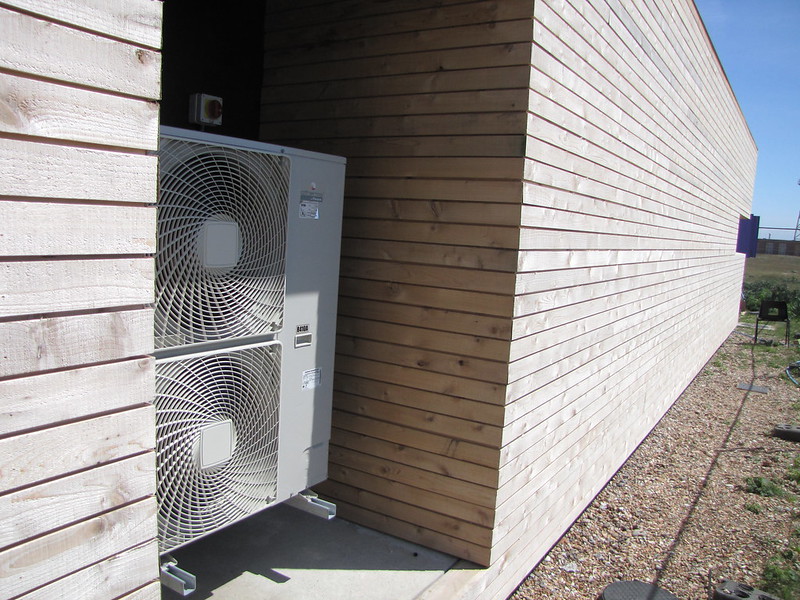As the world transitions towards more sustainable energy solutions, air source heat pumps have emerged as a popular choice for homeowners looking to reduce their carbon footprint and energy costs. Fortunately, there are various grants and incentives available to help offset the initial investment in these efficient heating and cooling systems. In this comprehensive guide, we’ll explore the different grant programs, eligibility criteria, and application processes to help you navigate the world of air source heat pump financing.
Understanding the Boiler Upgrade Scheme in England and Wales
The Boiler Upgrade Scheme (BUS) in England and Wales offers grants of up to £7,500 for the installation of air source heat pumps. To be eligible, the property must be owner-occupied, use an MCS-accredited installer, replace an old fossil fuel or electric heating system, and have a valid Energy Performance Certificate (EPC) with no outstanding loft or cavity wall insulation recommendations.
The application process for the BUS is straightforward, as the installer applies for the grant on behalf of the homeowner and subtracts the grant amount from the total installation cost. This ensures a seamless experience for the homeowner, who can take advantage of the financial support without the hassle of navigating the bureaucratic process.
Exploring the Home Energy Scotland Scheme
In Scotland, the Home Energy Scotland Scheme provides even more generous support for air source heat pump installations. Homeowners can receive grants of up to £7,500, which can increase to £9,000 for properties in remote areas. Additionally, the scheme offers interest-free loans of up to £7,500, meaning that most households in Scotland can receive financial support of up to £15,000 for their air source heat pump project.
To be eligible for the Home Energy Scotland Scheme, the property must be owner-occupied, and the homeowner must apply directly to the scheme before the installation takes place. This ensures that the grant is secured upfront, providing financial certainty for the homeowner.
Leveraging the Inflation Reduction Act (IRA) in the United States
In the United States, the recently enacted Inflation Reduction Act (IRA) offers a federal tax credit of up to $2,000 or 30% of the installation cost for high-efficiency heat pumps, including air-source heat pumps installed in primary residences from January 1, 2023. To qualify for this tax credit, the heat pump must meet certain efficiency requirements, which are outlined in the IRA.
In addition to the tax credit, the IRA also includes a separate program called Home Efficiency Rebates, which offers up to $8,000 for retrofits that reduce overall energy consumption. This can include insulation, high-efficiency heating systems like heat pumps, and other energy-efficiency upgrades.
Exploring State and Local Incentives
Beyond the regional and federal grants, many state and local governments, as well as utility companies, offer additional incentives for homeowners who choose to install air source heat pumps or other energy-efficient home upgrades.
These incentives can range from a few hundred dollars to as much as $10,000, and homeowners can typically claim both federal and state or local incentives. It’s essential to research the available programs in your area, as the specific offerings and eligibility criteria may vary.
Navigating the Application Process
The application process for air source heat pump grants can vary depending on the specific program and location. In general, it’s recommended to work closely with a qualified and MCS-accredited installer, as they will often handle the grant application on the homeowner’s behalf.
For the Boiler Upgrade Scheme in England and Wales, the installer will apply for the grant and deduct the amount from the total installation cost. In Scotland, homeowners must apply directly to the Home Energy Scotland Scheme before the installation takes place.
For federal tax credits and rebates, such as those offered through the Inflation Reduction Act, homeowners will typically need to claim the incentives when filing their annual tax returns. It’s essential to keep detailed records of the installation and costs to ensure a smooth application process.
Maximizing Energy Efficiency and Savings
When installing an air source heat pump, it’s crucial to ensure that the system is properly sized and configured to maximize energy efficiency and cost savings. This may involve additional home upgrades, such as insulation, air sealing, and the installation of smart thermostats or other energy-management technologies.
By taking a comprehensive approach to home energy efficiency, homeowners can further enhance the benefits of their air source heat pump investment and unlock even greater long-term savings on their energy bills.
Conclusion
The availability of grants and incentives for air source heat pumps makes this technology an increasingly attractive option for homeowners looking to reduce their carbon footprint and energy costs. By understanding the various programs, eligibility criteria, and application processes, you can navigate the world of air source heat pump financing and take advantage of the financial support available in your region.
Remember to work closely with qualified installers, stay up-to-date on the latest incentive programs, and consider a whole-home approach to energy efficiency to maximize the benefits of your air source heat pump investment. With the right information and resources, you can make an informed decision and take a significant step towards a more sustainable future.

